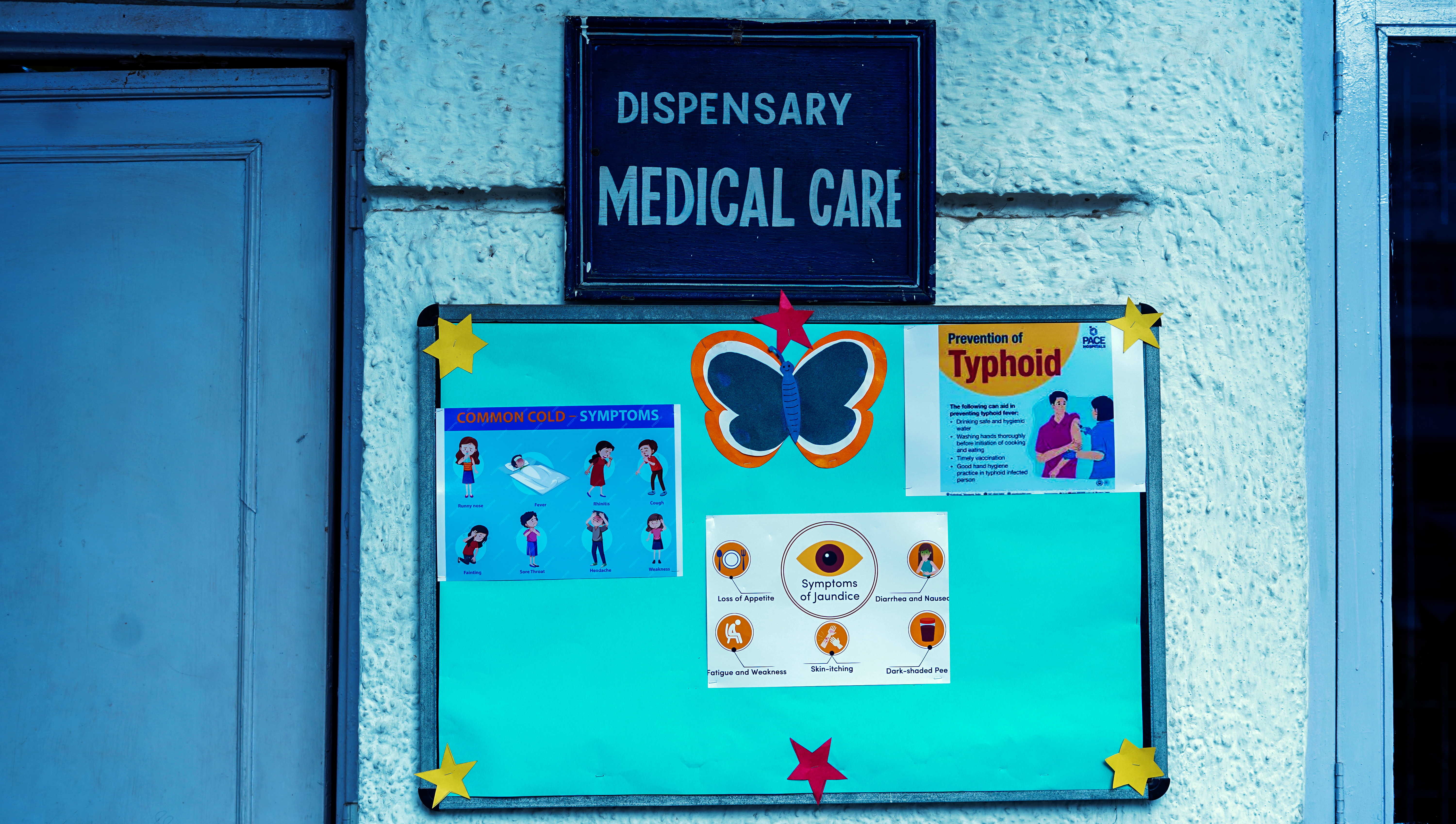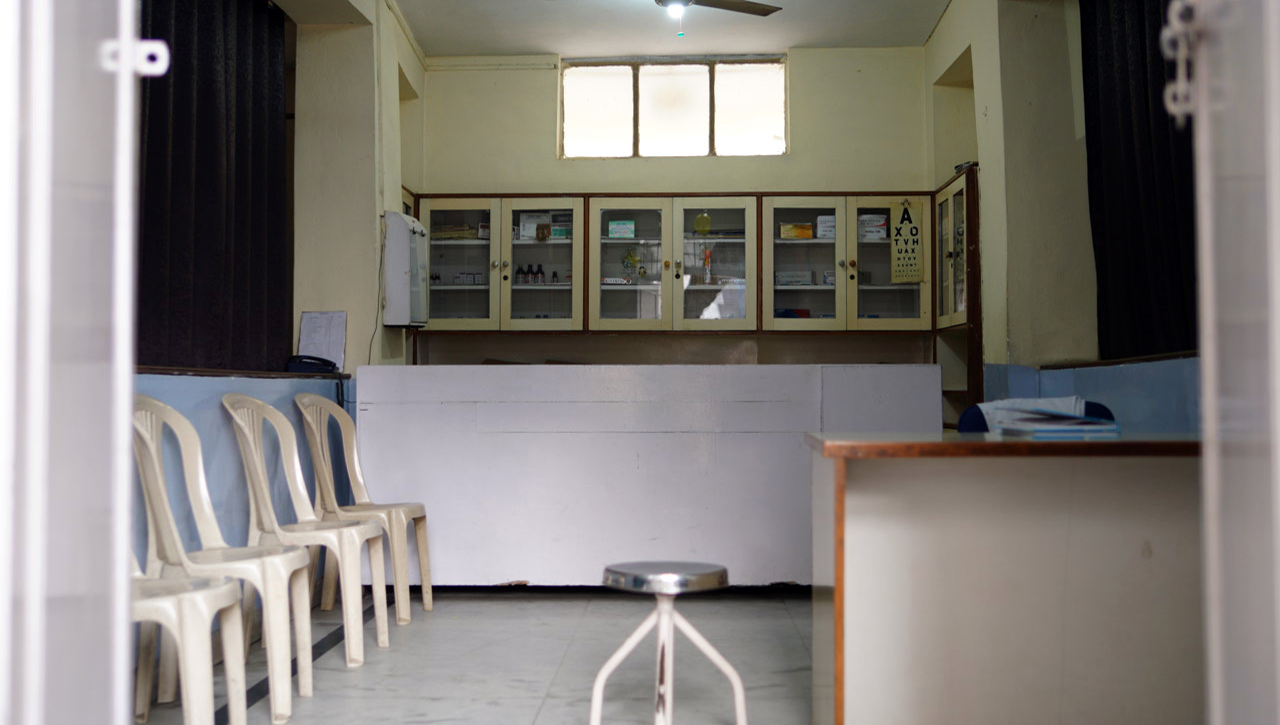Overview
Pastoral care is a supportive relationship that empowers those in crisis or transition to grow in the midst of change. During a student’s time in school, he makesa challenging transition from childhood to adulthood which is completely taken care of by our school. We understand that parents entrust the care and education of their children to us and we,too are committed to nurture them with love and care. We offer extraordinary advantages in resources and choices at all levels through the three academic Divisions (Primary School, Middle School and Senior School), and the House system. These create inter-locking layers of pastoral care which enable every child, the reserved as well as the extrovert, to find opportunities to lead a confident, fulfilled and enjoyable life at School.
Pastoral care is the responsibility of the Matrons and attendants. This is further bolstered by an experienced and well-resourced Medical Centre based in School, and an informed and skilled Catering Department. Pastoral care isn’t something that happens when things go wrong; it’s a constant support network for your child’s time in School.
The Boarding Scholars reside in four houses i.e. Alaknanda, Bhagirathi, Gangotri and Mandakini for Boys and a separate hostel for Girls christened as Narayani. The boarding facilities are planned to provide a family like atmosphere to our Boarders. There is a separate Hostel for Junior Boys, Senior Boys and Girls. The facility of AC in summers and Room Heaters in winters is also available, if parents opt for this. Each hostel has a separate warden and attendants to take care of the students round the clock guarded by 24×7 with professionally trained security guards. In Girls Hostel, only female security guards and female attendants are allowed to ensure total security of the girl students. Imparting quality education with nutritious meal, tender care, all round development along with safety and security of the children is our topmost priority.
We, at GIS are committed to a holistic education and view education as having intrinsic values, quite apart from its function of increasing vocational opportunities. Our responsibility lies not only in the development of academic skills, but also vital non cognitive skills.
The team GIS comprises of well-qualified teachers and instructors supported by administrative staff. Our endeavour is to provide an enriched environment to make teaching and learning a rewarding experience. Our curriculum caters to the needs of a changing world. It promotes and inculcates academic excellence along with leadership, self-confidence, mutual respect and a sense of global identity. Being a residential school, we take adequate measures to ensure quality pastoral care for our students.
We look forward to being equal partners in your child’s education. Give your child the advantage of GIS and discover why generations of GISians are so proud of their Alma Mater!
Infirmary
We know that the health of our students is of paramount importance and medical care is given a high priority in the school. The School has a fully equipped 8- bed Infirmary with the provision of an independent isolation ward. The team of medical personnel includes 2 experienced nurses.
In addition, the School has a partnership with the nearby Maharaja Agrasen Hospital Punjabi Bagh, New Delhi for any medical emergency.
All students undergo a full medical examination at the beginning and end of every term. Medical records are maintained. Teachers ensure that students requiring medical attention receive it and all medications given are recorded and checked. We also ensure that parents are kept fully informed regarding a student’s health not only in the case of major concerns but also in case of minor ailments.
Medical Camp
Medical Camp is conducted every year where students are subjected to medical checkup by physicians and other specialists. General physique, dental check-up, vision and hearing tests are conducted.
First Aid
First aid is given to all minor injuries that happen within the school.
Medical Room
The school has a very hygienic and a well-maintained room to accommodate the students falling sick during the school hours. The medical room is well furnished to satisfy the needs of the users. The medical room is cleaned regularly or as and when need arises with anti-bacterial cleansers. Bed covers are changed regularly and sterilized. The medical room is equipped with first aid medicines.
Emergency Transportation Service
The school has a vehicle and a driver for emergency transportation of pupils to hospitals/ clinics.
Healthy Meals

At GIS, we put a high top priority on school food policy since we acknowledge its power to build effective learning, assisting daily routines, attain daily changes throughout a well-balanced diet. Healthier meals support GIS's core objective of education, specifically when it concerns improving students' concentration, focus, and cognitive function. We know that improved nutrition in schools causes increased focus and attention, which results in improved test marks and much better class habits. Healthy school food helps students establish long-lasting healthy eating practices. It also adds to a culture of health at school, improving nutrition education messages from instructors. Healthy school food can also increase school connectedness, family, and community where students' health and wellness are valued. A well-balanced diet plan is crucial to healthy, consuming routines because it offers kids the nutrients they need to grow. Such a diet plan needs to consist of 3 day-to-day meals and two healthy treats with foods of the following food groups: protein, carbs, fruits, veggies, dairy foods, some fat, and sugar. Parents who get their kids to embrace healthy eating practices from a young age can have a positive impact on their kids' dietary practices later on in life. Over the years, scientists have found proof that eating habits and meal routines in early youth affect a child's food choices and eating patterns in the adult years. It is crucial to prevent sweet soft beverages, scrap food, and meals that are high in fat and sugar in the diet plan of kids as frequently as possible. It is a much better concept to use kids with a range of healthy foods such as fruits and veggies, which are simple to prepare. This is how parents can form their child's food choices, given that kids are most likely to delight in those foods they are used daily. Kids may embrace a sensation of disregard towards specific foods when they are forced to consume them. It is also not a great concept to get rid of salted treats and sugary foods from the diet plan of kids or to group foods into good and 'bad' classifications. Rather than using these 'bad' foods to reward great habits or stop bad habits, parents need to find other services to respond to specific habits, and we are always with them in achieving these goals.





